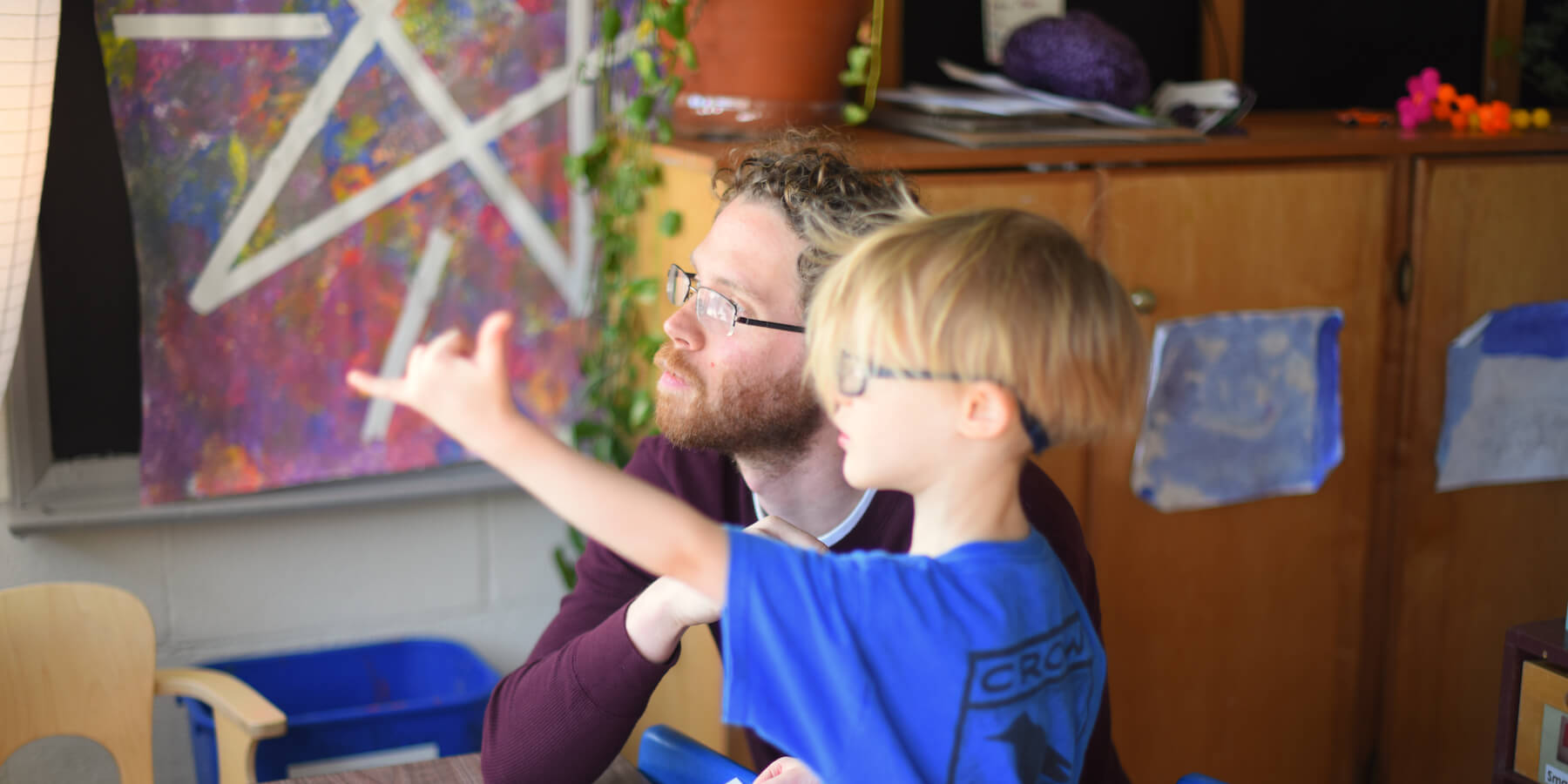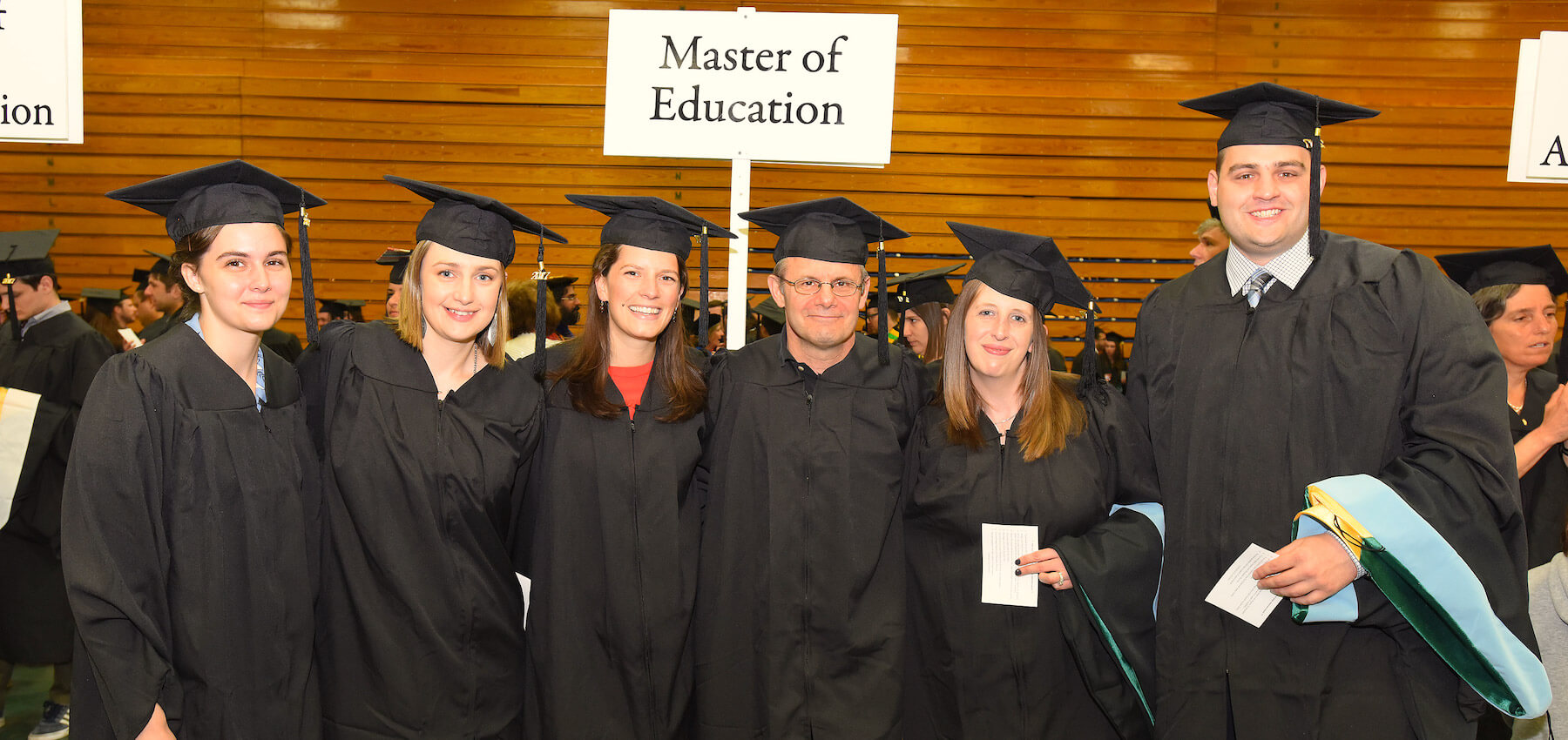Do you want to become a literacy leader?
Join us for the new, literacy-science aligned SLPE graduate program at UVM!
Become a Specialized Literacy Professional through our comprehensive program. Our innovative and newly revised sequence of courses prepares current educators to deepen literacy expertise and broaden professional opportunities.
Evidence based. Equity centered.
Engage in rigorous and evidence based approaches to reading, writing and language. Inspiring courses support literacy learning in the classroom and systems change at the school and district levels.
Our online SLPE program is aligned with Vermont Specialized Literacy Endorsement Educator Standards and the International Dyslexia Association Knowledge and Practice Standards.
Prepare to be a literacy leader with the knowledge and skills to educate and advocate for equitable access to literacy learning for all children through science based practices.
Flexibility and Convenience
The SLPE program works with your busy schedule! All SLPE courses are offered online (either synchronous or asynchronous) during the fall, spring and summer semester. The program includes 21 graduate credit hours including a clinical practicum.
Courses offered during the academic year are synchronous, three-hour meetings taking place once a week after the school day. Summer courses are offered asynchronously for increased flexibility.
If taken in sequence you can complete the coursework in two years. Course descriptions are provided below.
Please note, you must have a master's degree or complete one by the end of the SLPE program to be eligible for the Vermont Specialized Literacy Professional endorsement in addition you must also have a Vermont teaching license in a field related to literacy in either elementary or secondary education.
You may choose to take the SLPE course sequence in combination with the Advanced Specialties in Educational Practice M.Ed, or as a stand-alone sequence in preparation for the transcript review process for the Specialized Literacy Professional Vermont educator endorsement.
“My time in the UVM literacy program is an experience I will be forever thankful for in my teaching career. The program transformed my learning, encouraged me to take risks, and explore my own view of literacy as a learner. With highly skilled professors and diverse class content, I have taken away numerous tools to enhance my own literacy instruction.”
- Brittany Wildermuth, M.Ed, Kindergarten Teacher, Porter’s Point Elementary School
Contact
Please email Audrey Flynn Richardson at audrey.flynn@uvm.edu if are interested or have questions. You may also contact our Office of Graduate Student and Program Services for assistance.
Online Coursework
Complete coursework listed below (21 graduate credits) to achieve the SLP endorsement from the state of Vermont. With instructor permission, you may start this sequence with any of the following courses.
EDLT 5220 Cultivating Children’s Literacy in the Elementary and Middle School
This course focuses on current and seminal literacy research and evidence based best practice related to the development of strategic, motivated, and independent readers and writers. Grounded in learning standards from both the Common Core State standards as well as the Knowledge and Practice Standards set forth by the International Dyslexia Association, this course explores the essential stages of literacy development from birth to young adulthood. In addition, we apply the nuances of literacy development and acquisition through the lens of literacy as a sociocultural practice in which the components of literacy and teaching literacy are studied. Emphasis is given to the joint study of reading and writing in collaborative environments including school and family partnerships.
EDLT 5360 Culturally Responsive Approaches to Literacy and Literature
Through this course, you will deepen your understanding of culturally responsive, evidence-based literacy practices that incorporate children’s literature and multicultural texts. We will examine research on culturally responsive pedagogy, social justice, and equitable literacy instruction, evaluating texts and developing lesson plans that align with high-quality, scientifically supported literacy strategies. This course addresses the diverse needs of learners, emphasizing the importance of culturally sustaining, evidence-based practices in literacy education at various career stages.
EDLT 6750 Literacy Assessment: Understanding Individual Differences
This course focuses on using research-based assessment methods to identify, evaluate, and support literacy development in all learners, including those with learning differences and at-risk students. Moving beyond deficit-based models, it prioritizes formative, alternative, and normative assessment strategies grounded in literacy science to inform instructional adaptations. Participants will explore the influence of cultural and linguistic diversity on assessment and learn to design interactive, evidence-based assessment-instruction frameworks for classroom or clinical settings. Content from this course aligns with IDA knowledge and practice Standards for assessment and intervention. In addition to individual student proficiency, this course emphasizes understanding assessment within the context of comprehensive systems of assessment such as MTSS and collective efficacy to foster equitable literacy outcomes.
EDLT 6760 Literacy Instruction and Intervention Practicum
This 3-6 credit (6 for students seeking licensure) instruction and intervention opportunity offers both a synchronous course as well as a supervised clinical practicum. Both course and practicum experiences provide an intensive opportunity to apply research-supported literacy instruction, incorporating structured literacy approaches aligned with IDA standards. An important part of your work will be to demonstrate an understanding of the cultural, linguistic, and ethnic diversity of the children with whom we work as you plan and make recommendations to parents and school. You will be asked to use and explain research-based teaching strategies as you collaborate daily with your colleagues to help each of them develop the best research-based instructional program for each of their children. You will work with two children experiencing difficulty in literacy learning. The selected children will "stretch" your skills in a variety of ways, including working with children at an age level with which you are less familiar.
EDLT 6770 Literacy Leadership (for Equity)
This course explores the essential skills and dispositions needed to lead literacy initiatives in K–12 settings from an evidence-based perspective. Topics include understanding literacy policy at the state and national level (including Vermont’s Act 139), creating and sustaining literacy systems, coaching for literacy development, and systemic change to promote equitable access to high-quality literacy instruction, all grounded in research and best practices. The course emphasizes the importance of collective efficacy, comprehensive literacy systems, and frameworks like MTSS to improve student outcomes and foster literacy equity at a systemic level. Participants will analyze programs, develop professional development grounded in scientific evidence, and support school-wide literacy equity through leadership that emphasizes research-based practices.
EDLT 6850 Critical Issues in Language and Literacy
Designed for experienced literacy professionals, this hybrid course examines contemporary, research-driven issues in language and literacy acquisition, including socio-cultural, linguistic, and second-language learning contexts. Participants will analyze current research to understand implications for instruction, assessment, and policy, with a focus on applying evidence-based practices and advocating for equitable literacy education. Collaborative action research and professional development planning will be used to deepen understanding and implementation of scientifically supported literacy strategies.


